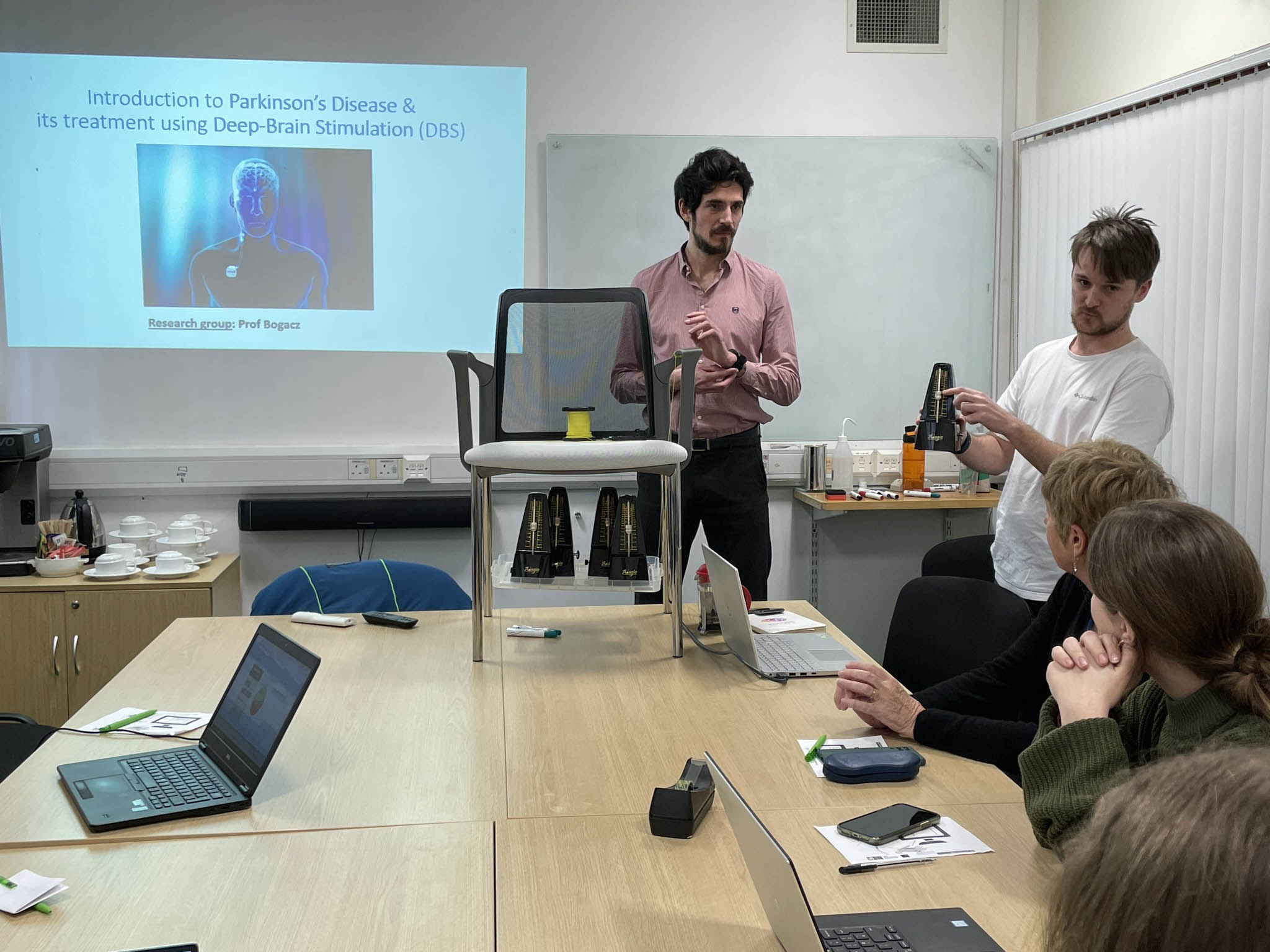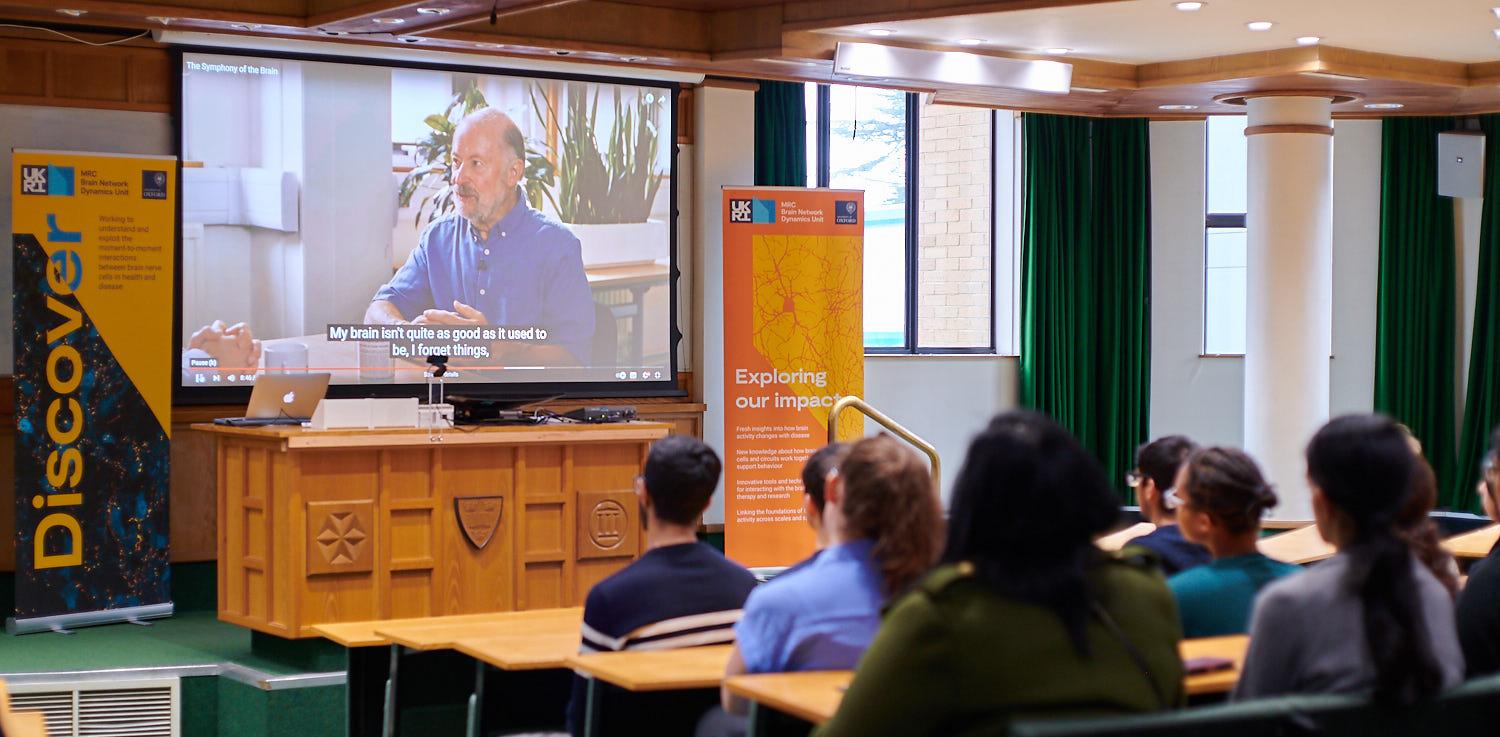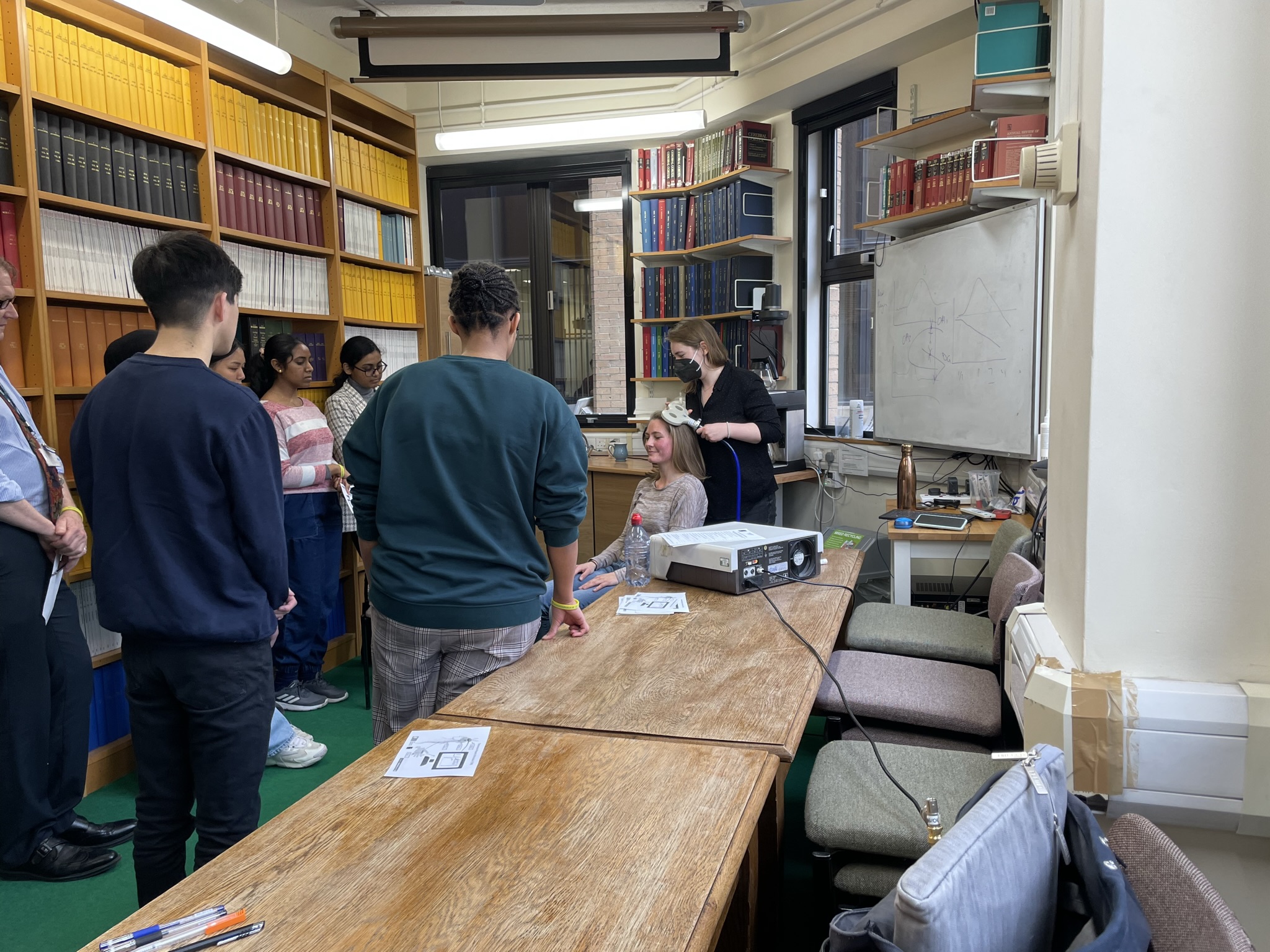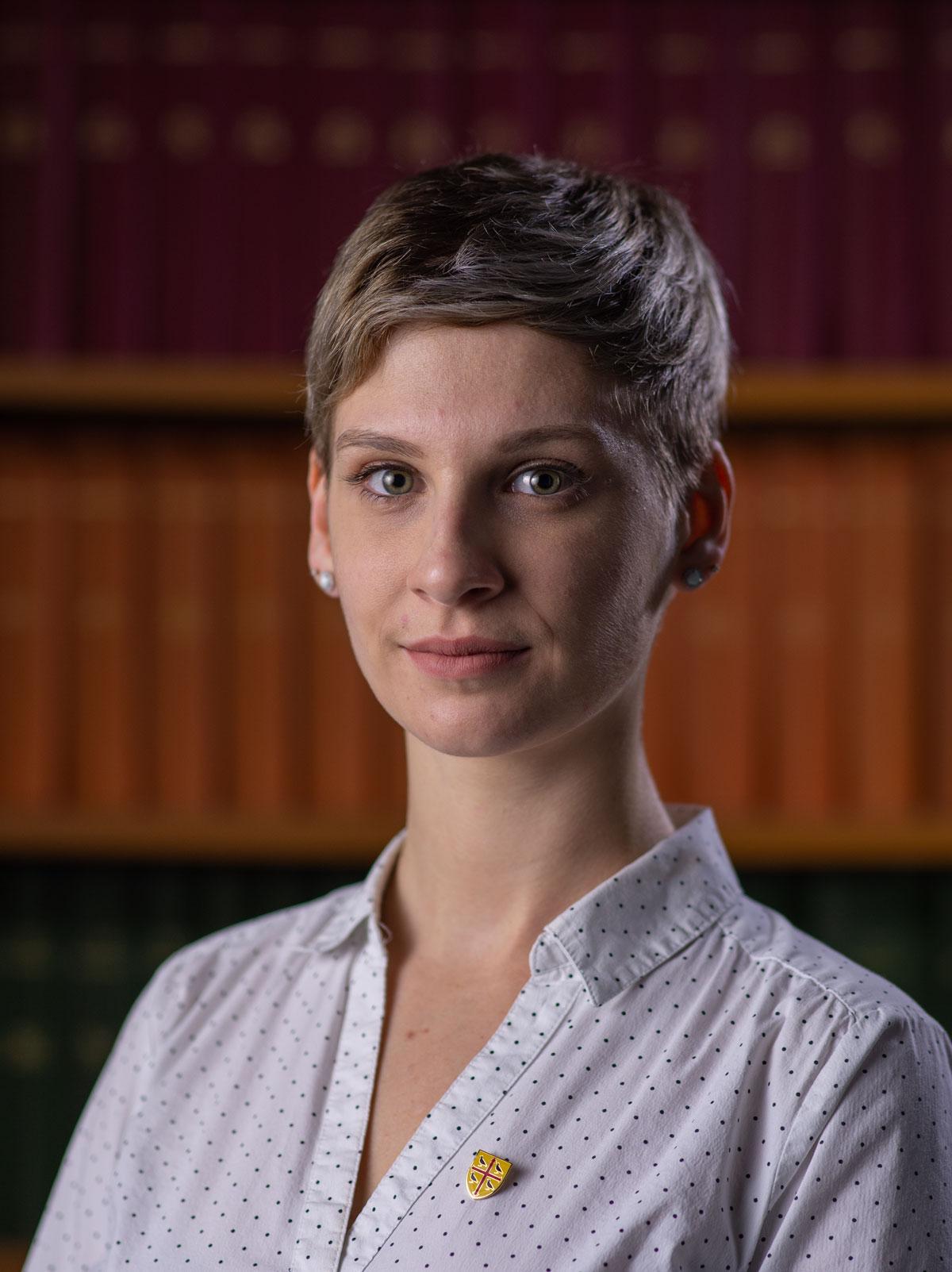
Warm congratulations to MRC Unit D.Phil. student Camille Lasbareilles for winning this year's Simon, Arpi, Marie & John Simonian Prize for Excellence in Leadership! The prize is awarded to an individual who has shown significant leadership qualities during their time at St Edmund Hall in any area, e.g. sport, charity work, journalism, theatre/drama, music, potential future academic leadership, or other outside interests.
Camille has distinguished herself as an active and enthusiastic member of the college. She organised several public engagement events for the Centre for the Creative Brain at St Edmund Hall with Prof. Stagg and Prof. Dupret, including 'Exploring Epilepsy through Art', 'Drawing the Human Brain' and 'Language Arts - Books, Comics and Language Learning'. She has also been involved in other public engagement activities, such as 'WIN-dow on the Brain', where she explained to the general public how non-invasive brain stimulation techniques work.
In her D.Phil at the Unit, Camille investigates the neurophysiological processes that govern motor control and motor learning in the healthy brain, and how these can be modulated using a type of non-invasive brain stimulation called transcranial alternating current stimulation (tACS).
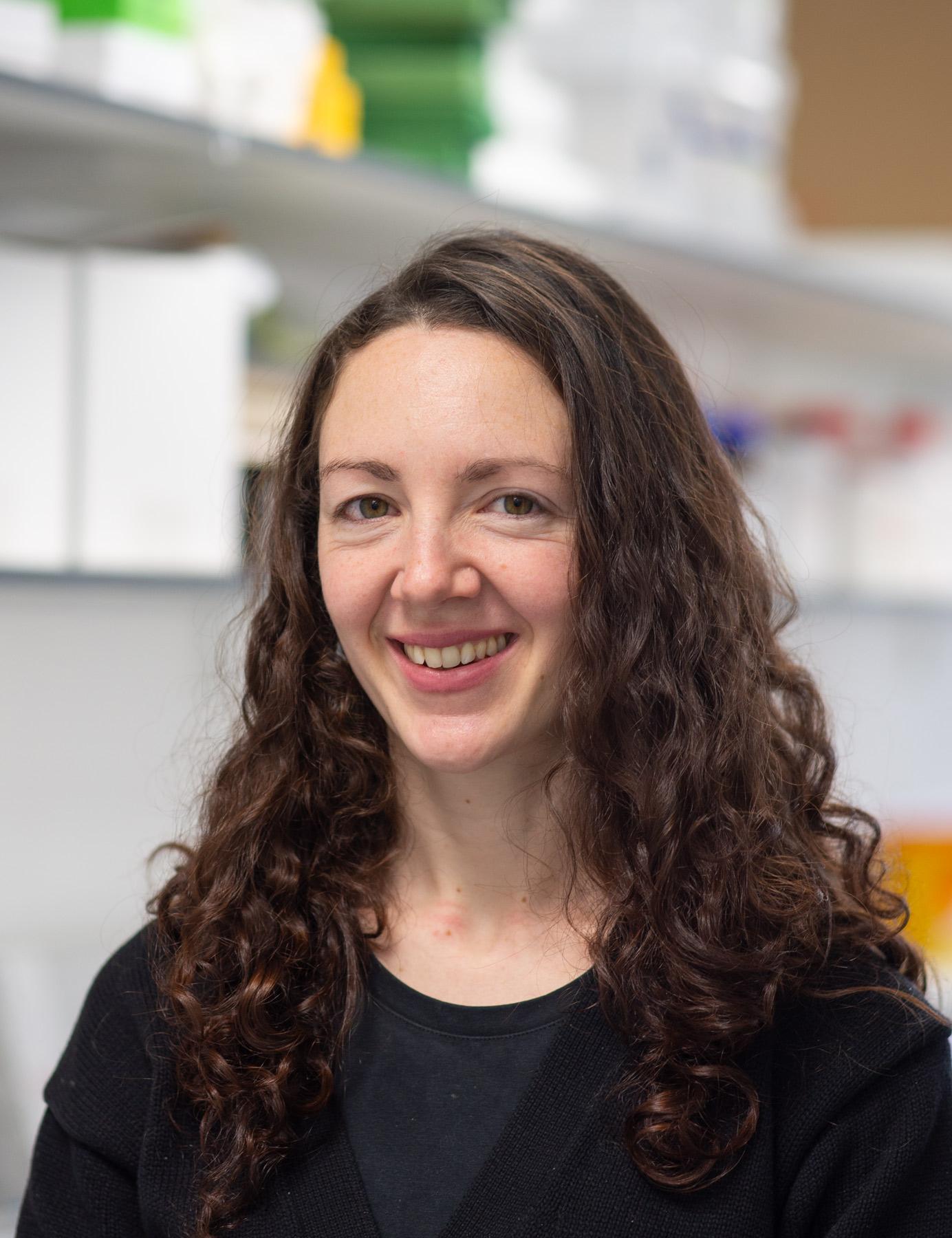
Congratulations to Unit Group Leader Dr Helen Barron on being awarded the title of Associate Professor by the University of Oxford.
Associate Professor titles are conferred annually in recognition of an individual’s distinction in their field as well as their wider contributions to research, teaching and administration/citizenship.
Unit Director Professor Peter Magill commented “We are delighted for Helen. This title is richly deserved, reflecting Helen’s remarkable research performance as well as many other academic achievements. Helen’s career is clearly flourishing!
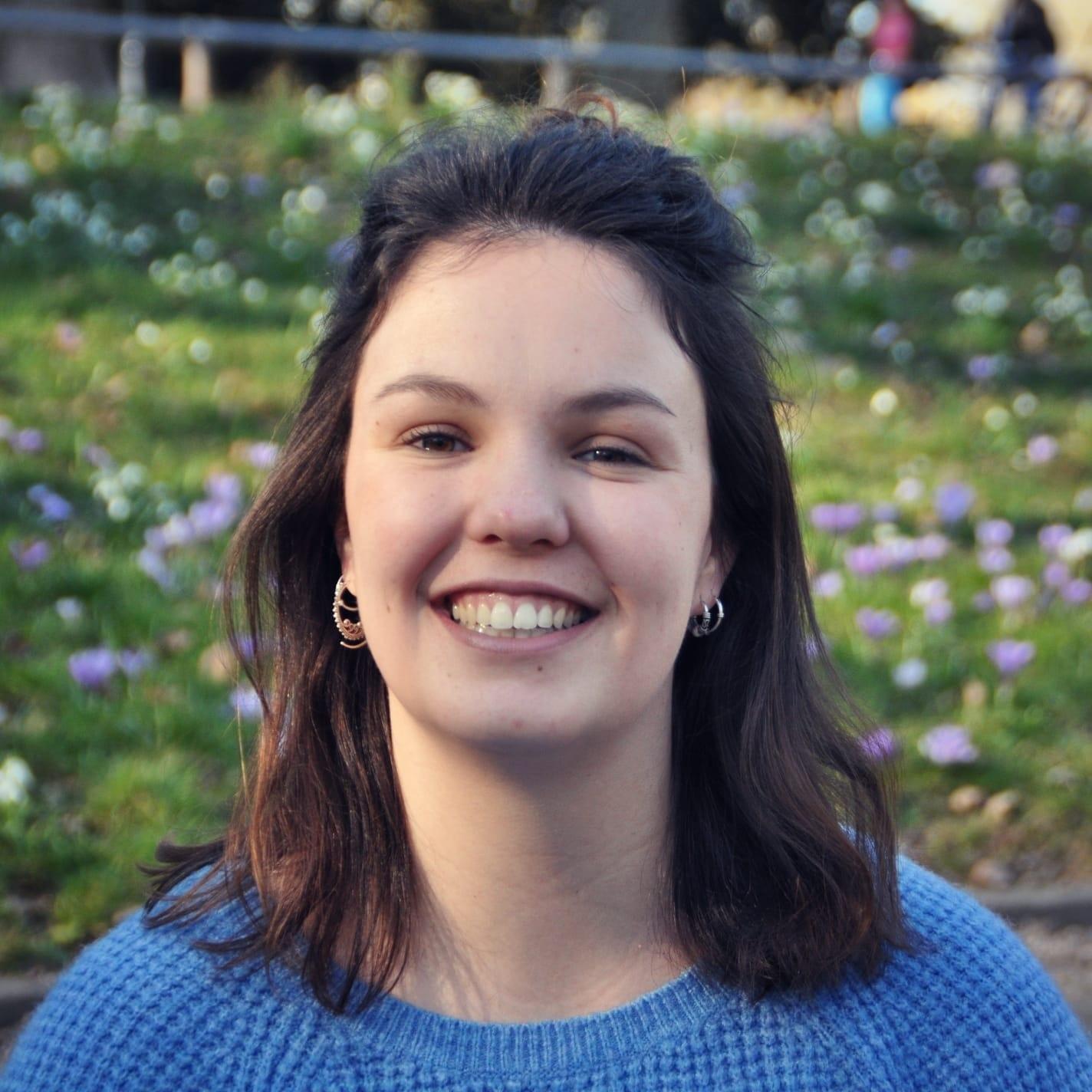
We are pleased to welcome Lauren Zwienenberg to the Unit as a visiting academic.
Lauren is a PhD candidate and psychologist from Maastricht University (Netherlands), whose research focuses on the treatment of TMS for depression. Specifically, she is interested in better understanding the heart-brain connection, which she uses for target engagement with brain stimulation techniques. During her 3-month visit to the Unit, Lauren will join the Stagg lab and conduct a research project looking into the effects of different pulse shapes and pulse widths on TMS induced heart-brain coupling.
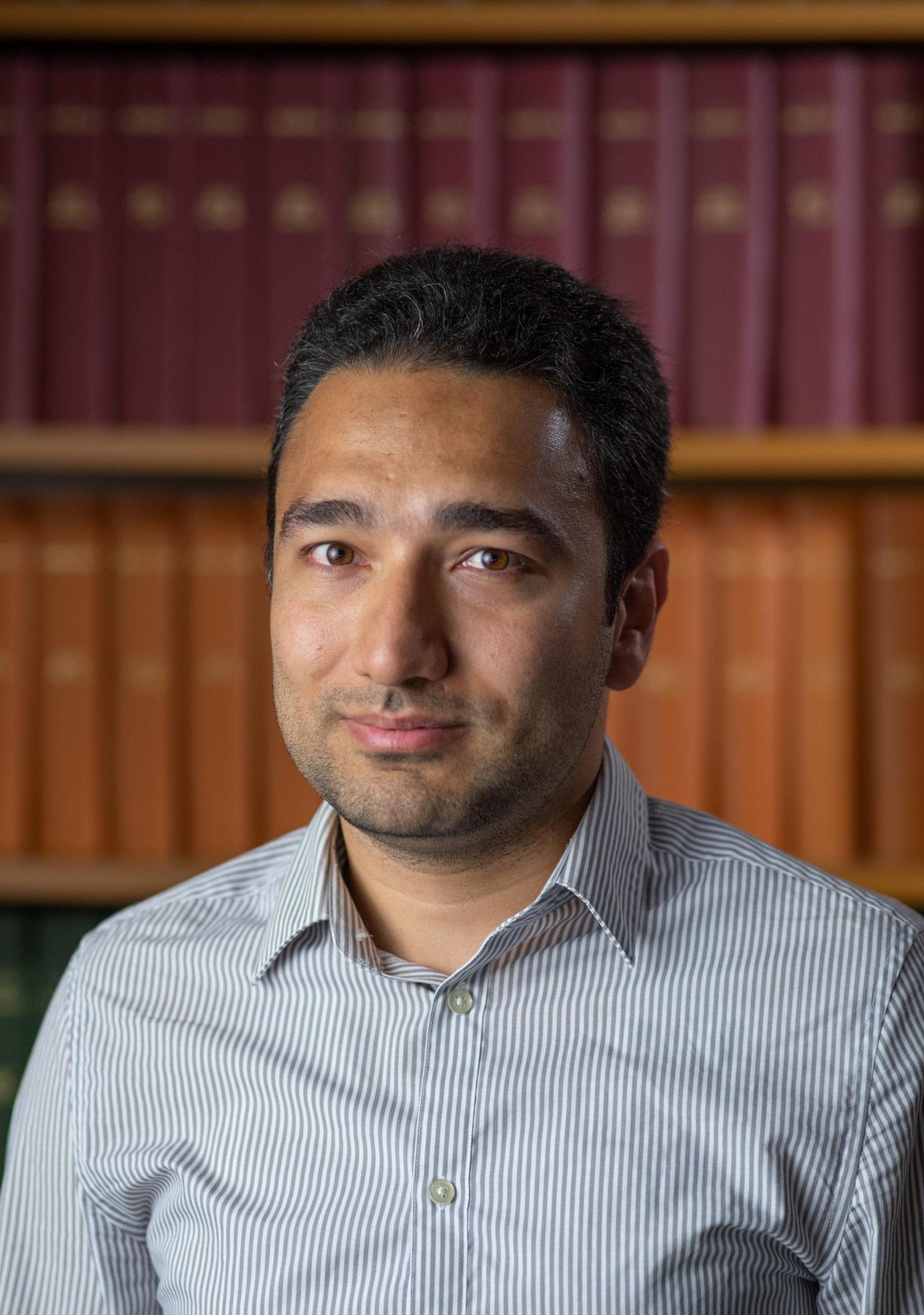
We are pleased to welcome Nima Mirkhani to the Unit. Nima has joined the Bogacz Group as a Postdoctoral Researcher to explore the effect of neurostimulation in neurological and psychiatric disorders using computational models.
Nima graduated from the University of Tehran in Mechanical Engineering in 2013 and later obtained his MSc from the same university. During his PhD in health sciences and technology at ETH Zurich, he focused on investigating novel spatially selective drug delivery strategies in cancer using living microrobots.
At the Unit, his research uses computational models to study the effect of brain stimulation in neurological and psychiatric disorders using computational models. Specifically, he is developing mathematical models to optimise the suppression of pathological oscillations in disorders like Parkinson's. Moreover, Nima is also interested in studying altered perceptual inference in psychiatric conditions, especially in the context of autism.
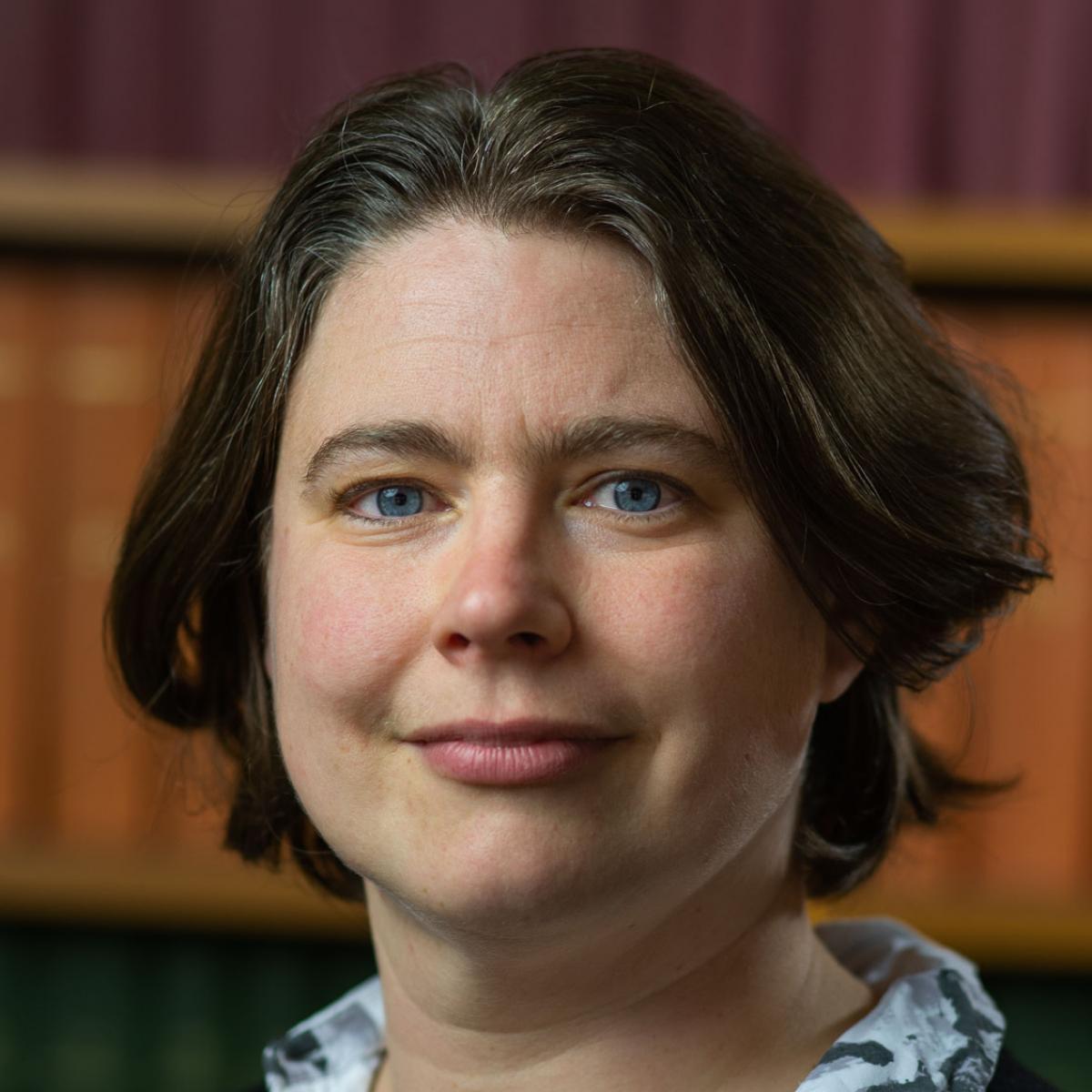
Congratulations to Unit Group Leader Professor Charlie Stagg who has been named as the Physiological Society GL Brown Prize Lecturer for 2024.
The GL Brown Prize Lecture Series is awarded annually by The Physiological Society to recognise outstanding original research contributions in physiology as well as the ability to stimulate wider interest in physiology. The Prize is named in honour of Sir George Lindor Brown FRS who was Waynflete Professor of Physiology at the University of Oxford. The Lecture Series will enable Professor Stagg to visit universities around the country and share her work in physiology with early-career researchers.
You can read more about this year's recipients of Prize Lectures on The Physiological Society website.
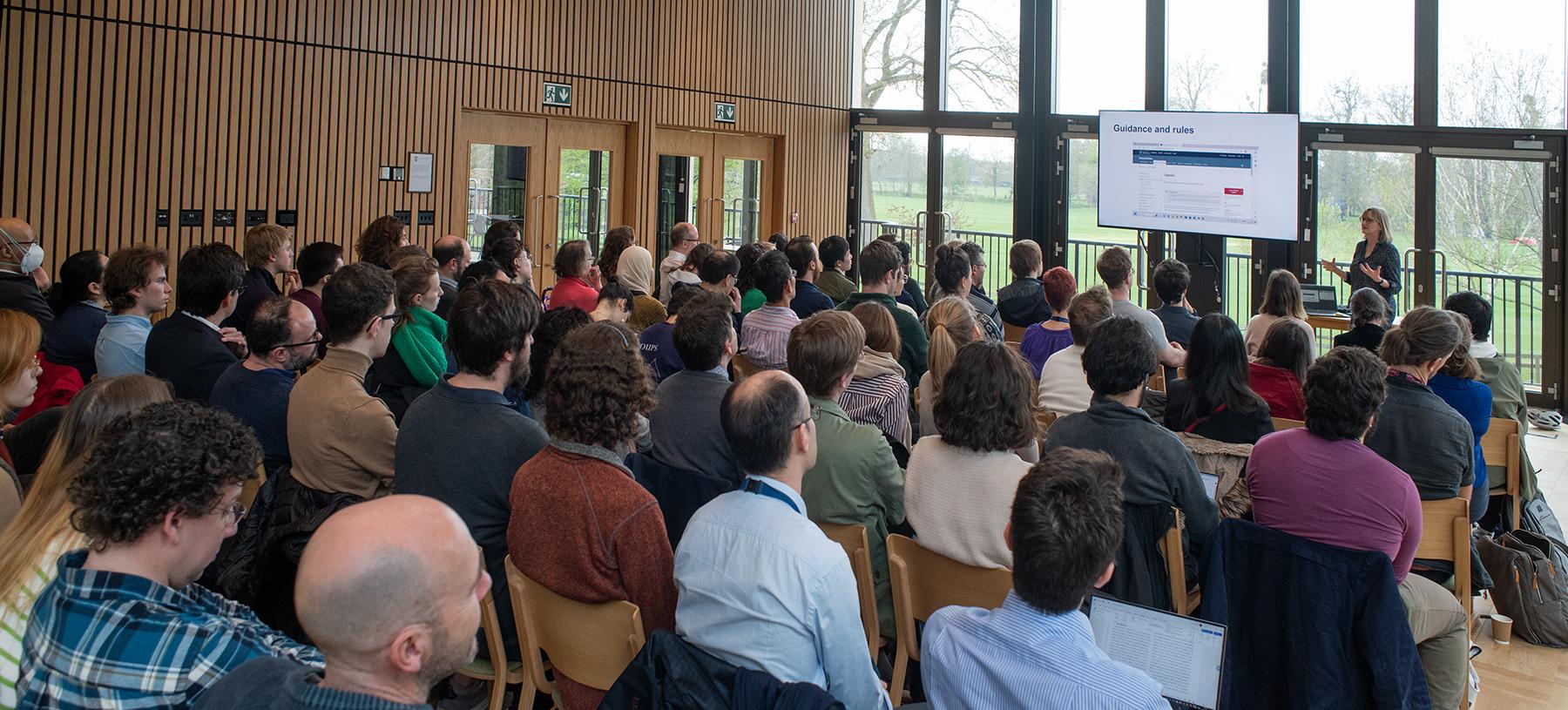
The Unit held its eighth annual Training & Careers Development Event on Wednesday 19th April. Unit members, together with colleagues from the University of Oxford, were treated to a range of enlightening presentations, each of which was followed by an engaging Q & A session.
Unit Director Professor Peter Magill started the Event by reiterating some key aspects of the Unit’s approach to training and career development. This was followed by an insightful joint presentation by Dr Laura Newell and Dr Benedicte Menn of Oxford University Innovation about ways and means of commercialising research, focusing on the protection of Intellectual Property and the creation of spinout companies. Ginny Matthews of the University’s Assurance Directorate and James Lee of NDCN’s professional services team then gave a joint presentation and some welcome practical advice on navigating the UK’s General Data Protection Regulation and best practice for compliant data sharing. Unit Administrator Vivienne Collins then concluded the general session by giving some well-received guidance on the do’s and don’ts of expenses claims.
In the first of two break-out workshops held after refreshments, Charlotte Houghton of the University’s Environmental Sustainability team led an interactive discussion about the Laboratory Efficiency Assessment Framework (LEAF) scheme at Oxford. Unit postdoctoral researcher Dr Camille Loiseau then related her experiences of implementing LEAF at the Unit. In the second workshop, Dr Joanna Bagniewska of the University’s Department of Paediatrics offered some valuable recommendations on how to use social media to enhance career visibility for research.
Professor Charlotte Stagg, Chair of the Unit’s Training & Career Development Committee, commented “The provision of bespoke training and career support continues to be a priority for the Unit. We are most grateful to our expert speakers, and we look forward to acting on their great advice.”
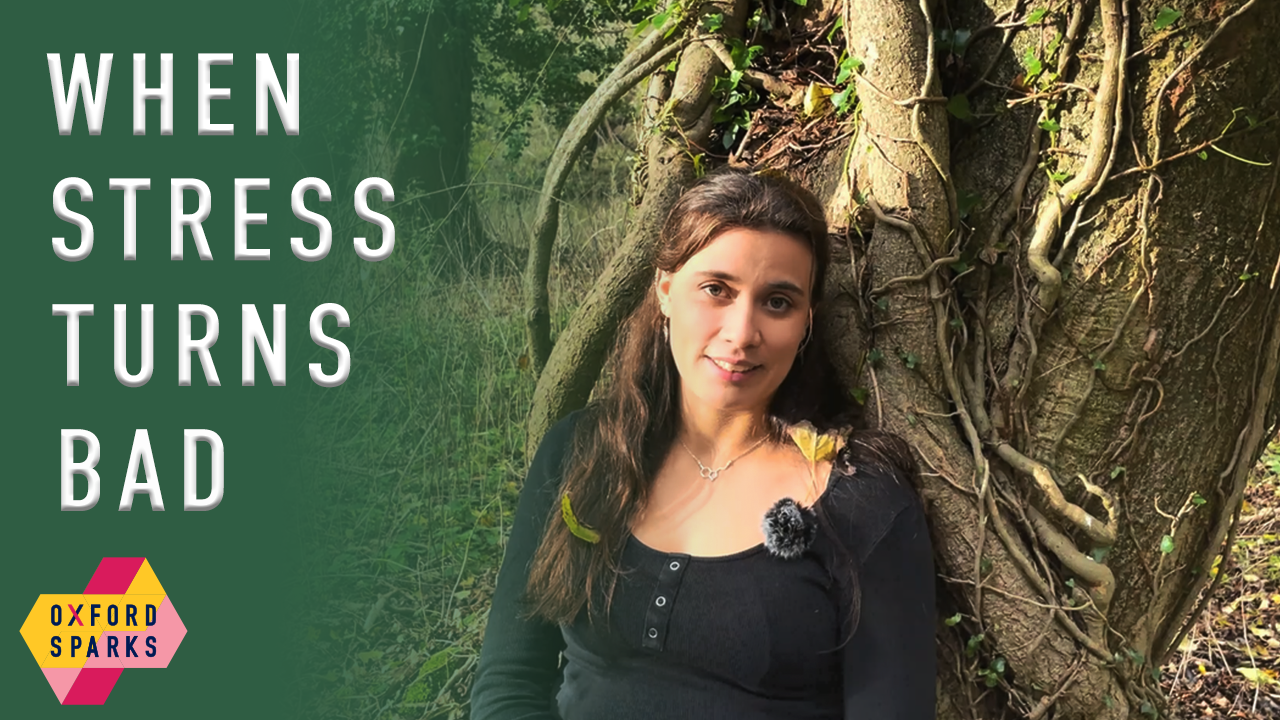
We are delighted to share the new video written and filmed by Unit D.Phil. Student Charlotte Collingwood in partnership with Oxford Sparks.
Why did stress evolve? What are the stages of stress, and is there anything we can do to help combat long-term issues? You can find the answers to these questions in the new Oxford Sparks video, where Charlotte discusses where stress comes from, how it affects your brain and what we can do to keep it from ‘turning bad’.
Charlotte was one of the Oxford Sparks Ambassadors last year, an initiative that aims to create open, fun and accessible content highlighting the exciting scientific research at the University of Oxford. You can watch "When Stress Turns Bad" on the YouTube channel of Oxford Sparks or on the Oxford Sparks website. You can also watch "The Symphony of The Brain", a video made in partnership with Oxford Sparks to engage the public with research carried out at the MRC BNDU.
Charlotte has also recently started a competitive three-month internship at the Royal Institution of Great Britain, where she will be creating even more engaging content in collaboration with their digital media team.
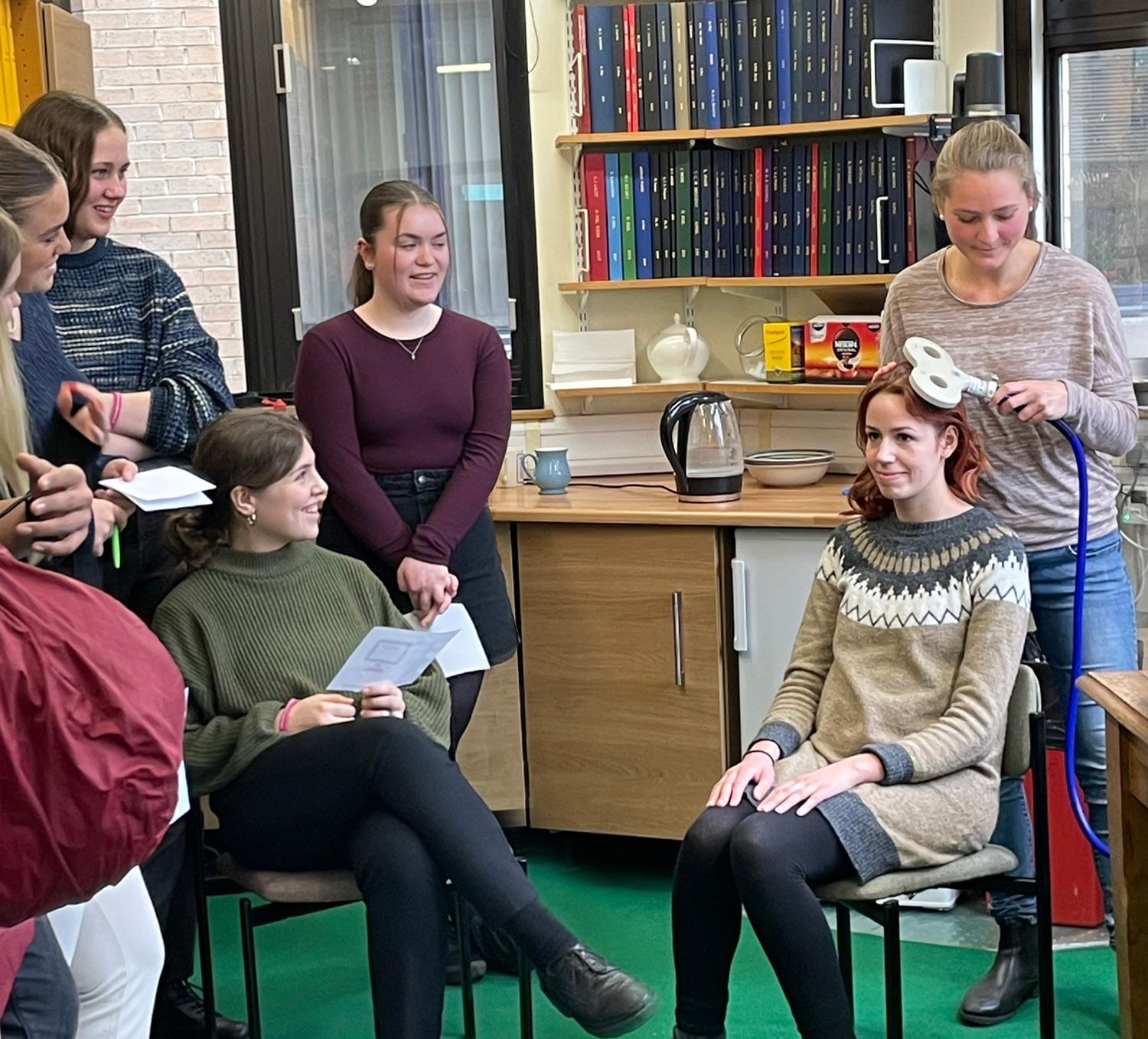
On the 21st March, the MRC Brain Network Dynamics Unit welcomed pupils and teachers from local state-funded schools to its annual Schools Open Day.
During the visit, the pupils took the opportunity to learn more about STEM (Science, Technology, Engineering and Mathematics) and medical research from Unit staff and students. The visit started with a group introductory session, where pupils viewed the “The Symphony of the Brain” video showcasing the work conducted in the Unit, followed by a discussion on the use of animals in research. After that, the pupils rotated in small groups through different hands-on activities led by Unit members, highlighting the Unit’s core research themes. These activities included a lab-based microscopy session exploring the study of Parkinson's in rodents, a demonstration of human brain stimulation, and a computer game simulating patterns of brain activity. The pupils also saw a live demonstration of a brain-computer interface speller which read brain signals to type words. The visit ended with a wrap-up session and feedback capture.
Overall, the event was a success, with overwhelmingly positive feedback from both students and teachers.
Chloe Crozier-Behan, Head of Chemistry at The Swan School, commented “I just wanted to say a huge thank you to you and your team for the visit yesterday! Our students (and our staff) had such a fantastic time and learned so much! It was especially brilliant for our non-biologists to see the range of disciplines all working together!”.
Mandy Hoosein, Careers Co-Ordinator at the Oxford Spires Academy, commented "Absolutely amazing day from start to finish. Very well looked after".
Liz Hounsell, Sixth Form Pastoral Assistant at the Gosford Hill School, commented “It is really useful for students to gain understanding of where staff have come from, especially PhD students, and what degree they did, and to understand that a subject such as neuroscience has a cross-section of different disciplines within it”.
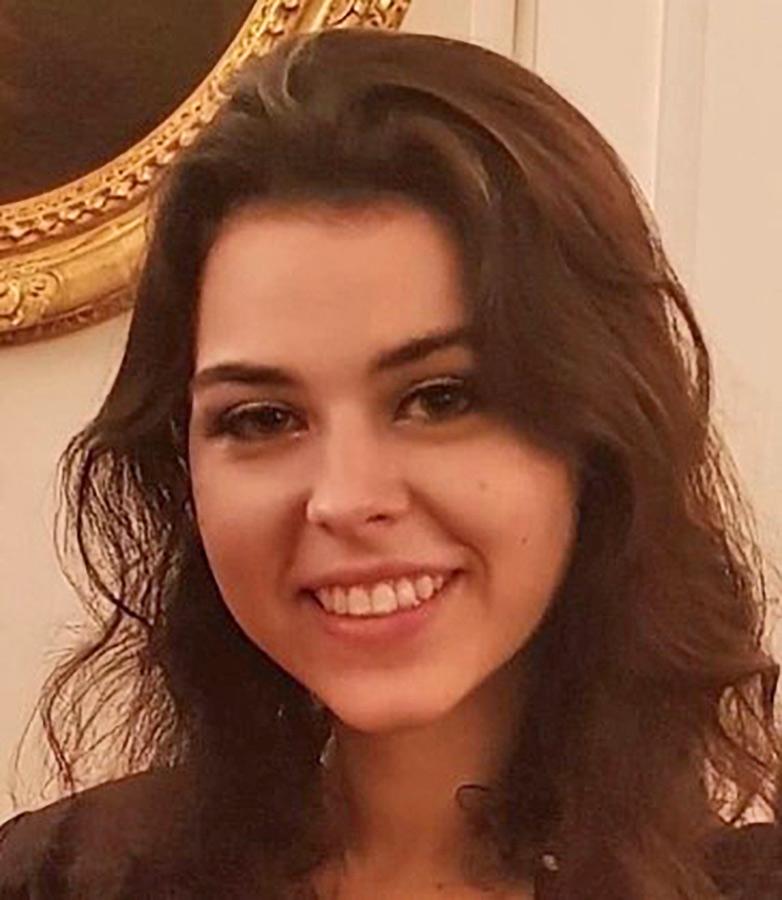
We are pleased to welcome Mia Whitefield as a rotation student on a doctoral training programme.
Mia studied Natural Sciences at the University of Cambridge with an MSci in Systems Biology. During her masters she completed a research project investigating how temporal statistical learning is altered in individuals with chronic pain, supervised by Dr Flavia Mancini. Mia is now in her first year of the Interdisciplinary Biosciences Doctoral Training Programme, funded by the Biotechnology and Biological Sciences Research Council (BBSRC). As part of the programme, Mia completed a rotation project investigating compositional learning in artificial neural networks, supervised by Professor Chris Summerfield.
Mia is joining us to participate in her next rotation project, supervised by Dr Helen Barron, and will be studying predictive coding in the hippocampus by analysing calcium imaging data recorded during an inference task.
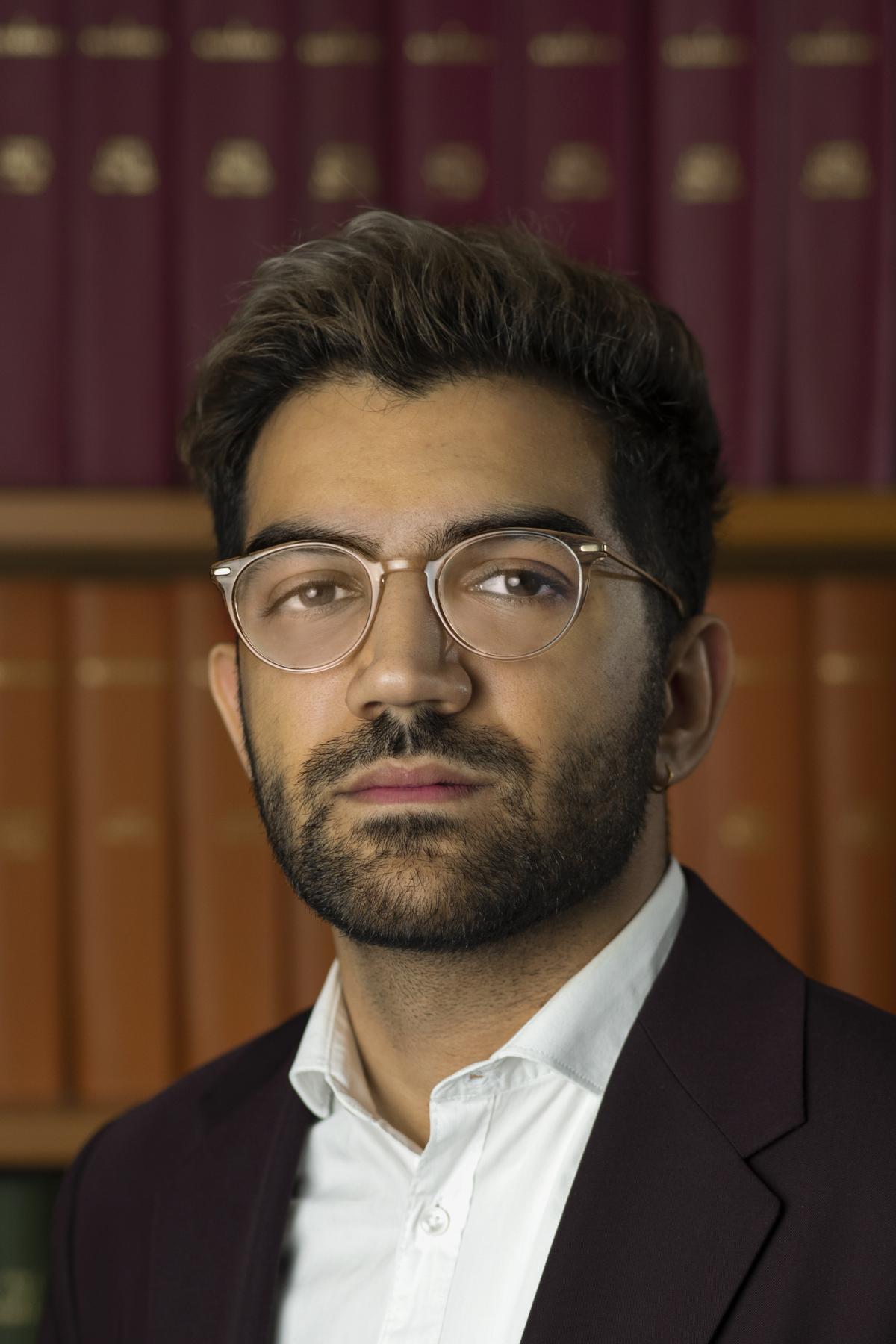
Many congratulations to Unit D.Phil. student Faissal Sharif on being selected to join the British Neuroscience Association (BNA) Scholars Programme.
The BNA Scholars Programme was launched in 2021 with a view to improving equality, diversity and inclusion in neuroscience. The programme supports students from currently under-represented ethnic groups in neuroscience, offering them a mentoring scheme, networking opportunities, and membership to both the BNA and Federation of European Neuroscience Societies, as well as funding towards attendance at conferences. Students are accepted on to the Scholars Programme following an annual open competition.
Faissal’s D.Phil. research is currently focused on novel non-invasive brain stimulation applications targeting psychiatric symptoms present in a variety of affective and neurological disorders. Beyond potential new transdiagnostic treatments using neurotechnology, Faissal is interested in the neuronal underpinnings of affective processing, anhedonia and apathy. Faissal is supervised by Professor Huiling Tan.
Faissal is the Unit’s second BNA Scholar, now joining Unit student Cal Shearer on the Programme.
